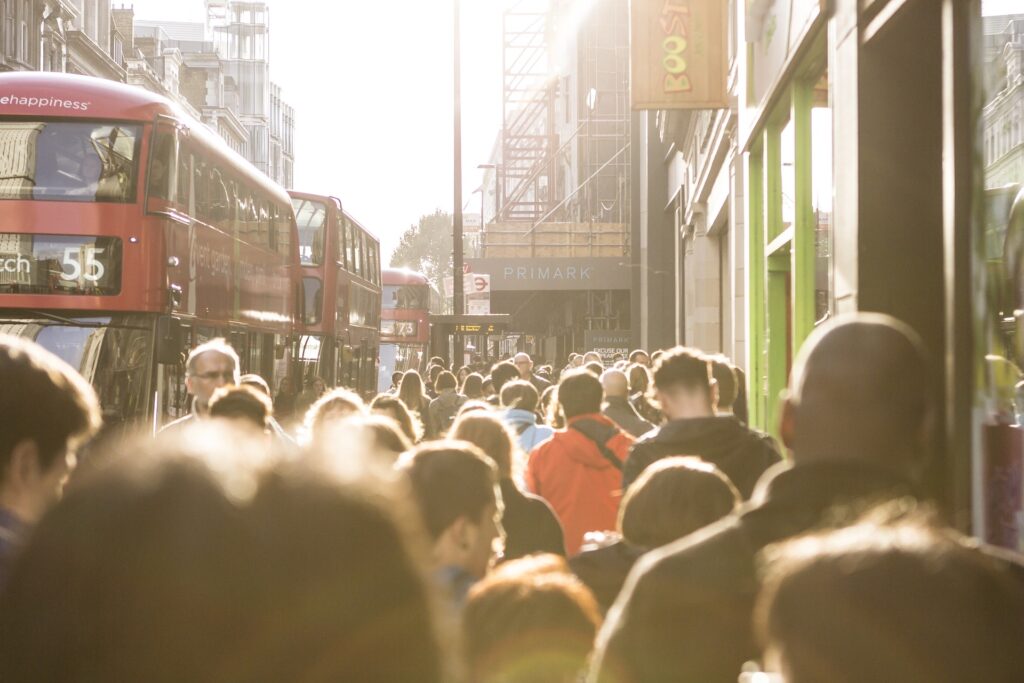Feeling nervous in some social situations is actually pretty normal, and most people will experience it at some point in their life. Going on a first date, presentations, or meeting new people, for example, can all contribute to that feeling of butterflies in your stomach. This sort of response, whilst it can be a bit annoying, doesn’t tend to cause too many roadblocks and is generally pretty manageable.
However, when someone is struggling with social anxiety, simple everyday interactions can cause severe anxiety and stress. Battling with social anxiety can be an overwhelming and isolating experience, and most people find it easier to avoid situations that trigger a response entirely, putting them at risk of cutting themselves off from their friends and family.
Social anxiety can be an all-consuming chronic mental health condition that can disrupt every element of someone’s daily life. Knowing the signs and how to manage them is the best way to stop it from spiralling out of control and prevent it from taking the rest of your life in a chokehold.
What is social anxiety?
Social anxiety, also referred to as social phobia, is a long-term fear of social situations. It isn’t just triggered by large crowds or meeting new people, but any form of social interaction can be totally overwhelming and triggering for someone battling with social anxiety.
Like most anxiety or stress responses, social anxiety symptoms can range on the spectrum from mild sweating, increased heart rate, and blushing, to a full-blown panic attack. For a lot of people, social anxiety isn’t solely limited to a direct social encounter, but just thinking about or planning an upcoming event, however minor, can trigger an anxiety response.
Psychical symptoms of social anxiety
Social anxiety is pretty easy to spot and symptoms look just like most other anxiety disorders. But if you’re still asking yourself ‘do I have social anxiety?’, here’s a few of the most common symptoms to look out for:
- Blushing
- Increased heart rate
- Shaking or muscle tension
- Nausea or stomach upset
- Breathlessness
- Dizziness or light headedness
- Brain fog
As so social interactions are unavoidable and can happen almost as soon as you step outside your front door, people suffering from a social anxiety condition can find daily life a very overwhelming experience. In a lot of cases, people tend to avoid social situations entirely, choosing to stay in the sanctuary of their own homes instead. Whilst this may be helping in the short term by removing the trigger altogether, it can lead to isolation and an even more intense response when they’re next met with a social interaction.
What causes social anxiety
There is no one particular cause of social anxiety. In each person, social anxiety will link back to a different reason or combination of reasons. In some cases, a person might be predisposed to the condition through genetics or biological reasons. If you have a family member who also struggles with social anxiety, you are genetically more at risk of developing the same condition. Biology also has a part to play, problems with the neurotransmitter systems in the brain can result in hormone imbalances. When imbalances occur, secretion of the hormones dopamine and serotonin, which controls a person’s mood, can go awry and make them more susceptible to anxiety.
In other instances, social anxiety has been associated with negative experiences. A negative experience can look like anything from bullying to abuse, overbearing parents, traumatic events (particularly where PTSD occurs), or even having an insecure attachment style.
The origin of social anxiety is a hotly contested topic amongst industry experts. Some argue that external environmental factors, like a negative or traumatic experience, can cause social anxiety but only contributes to part of the complex interaction which also involves biological or genetic features as well.
As a result, it can be very hard to shield yourself from developing social anxiety, and it quite often stems from a combination of factors outside of your control. That means it’s even more important to understand the warning signs and know how to deal with it if it rears its ugly head.
How to deal with social anxiety
There are tonnes of at-home remedies you can put into practice, starting now, to help tackle social anxiety. Even taking a small step can have a big impact so don’t brush anything you’re doing off as insignificant. Ousting a condition like social anxiety doesn’t happen overnight and will take time and consistency from you. Stick with it and don’t lose heart, just making those small changes can help you get your life back.
Managing your lifestyle
If you’re prone to anxiety or are struggling with social anxiety, then maintaining a healthy lifestyle is going to be your first port of call. We know it sounds cliché, but it can really make all the difference. Eating a healthy well-balanced diet and getting enough sleep will set you up with enough energy to tackle social situations and helps your body to function at the best of its ability. A good diet with all the right vitamins and minerals can help to keep those pesky hormones in balance and help you maintain resilience in stressful situations.
Avoiding anxiety-inducing substances like alcohol, caffeine, nicotine, or drugs is another important factor to implement. By chemically elevating your anxiety levels through substances like these you’re opening yourself up to have a negative response which makes it even harder to overcome them and can lead to the condition spiralling out of control.
Take small steps
When it comes to social anxiety, it’s important to be empathetic with yourself. It can be so tempting to try to run before you can walk and launch yourself into a stressful social situation to try to ‘just get over it’. This can do more harm than good and is more likely to set you back rather than make any progress. Instead, consciously take small steps, be kind to yourself and respect what your body is telling you it needs. Here are a few ideas for how you can start slow:
- Purposefully make eye contact with someone
- Be the first to initiate a ‘hello’
- Ask a stranger for directions
- Eat with a close friend or family member in a public setting
- Give someone a compliment
Prepare yourself
One of the biggest triggers for social anxiety is feeling caught off guard or overwhelmed. To try and alleviate some of this stress and reduce the chances of that happening, prepare yourself for certain social interactions. For example, prep for a few conversations by keeping yourself on current events or plan a few questions you will ask people ahead of time rather than scrambling for something to say.
Remind yourself about the personal qualities you possess and keep these in the forefront of your mind. Push the negative thoughts out of your head and focus on what your strengths are, and what makes you a good person. Practice some daily affirmations to start shifting your mindset and reinforce in your mind’s eye that you ARE capable of overcoming these struggles and that you DO deserve to be happy!
Practice some relaxation and coping mechanisms that can help you manage your anxiety responses and prevent them from spiralling into a full-on panic attack. The more confident you are in your ability to curb your anxiety and not let it boil over, the more confident you will be in yourself in social situations. Here’s a few of our favourite relaxation tactics for you to try yourself:
- Put one hand on your chest and one hand on your stomach and take slow regular breaths. The hand on your stomach should move more than your chest. Focus on this to regulate your breathing and make sure you’re taking proper, deep breaths.
- Practice the 3-3-3 rule for anxiety
- Close your eyes and count slowly upwards to 10, 20, or however high you feel like going.
- Use affirmations to reinstate your positive mindset and remind yourself you can get through this.
Establish a supportive network
It’s so important for people struggling with social anxiety to have a strong support system around them. The urge is for people to withdraw into themselves and cut themselves off entirely from society, but this isn’t the answer! Reach out to people you trust in your inner circle, let them know you’re struggling and might be distant from time to time. If they know what’s going on then they’ll be in a much better position to support you and know to drop in from time to time to make sure you’re doing OK.
There are tonnes of online support groups to join for people suffering with social anxiety. If you feel more comfortable connecting with people online then have a look for a reputable support group that ticks the right boxes for you. It’s a great place to meet people also struggling with social anxiety and can help to make the world feel a little bit less lonely, as well as giving you some new ideas to keep in your arsenal when it comes to overcoming anxiety.
If there’s someone in your network struggling with social anxiety, with Morale you can reach out and offer them support without even setting a foot through their front door. Drop in via daily positive affirmations sent directly to their phone to remind them that someone is looking out for them. Just a few well-placed words of support can do a lot to alter their mindset and help them take steps to overcome social anxiety, all through the power of affirmation and self-belief. Alternatively, if you’re struggling with social anxiety yourself but you still want to show up for your friends and family, then this is a great non-contact way to do it. No social interaction necessary, simply send a boost to their phone every day.
It couldn’t be any easier, just download the app from Google Play or Apple’s App Store and you’re good to go.
In need of a daily dose of positive vibes? Make sure you hit subscribe to our social media so you never miss a beat.
We can’t get enough of YOU here at Morale. If you’ve got something to say or want to find out more, drop us an email to contact@moraleapp.co and we’ll be in touch.











